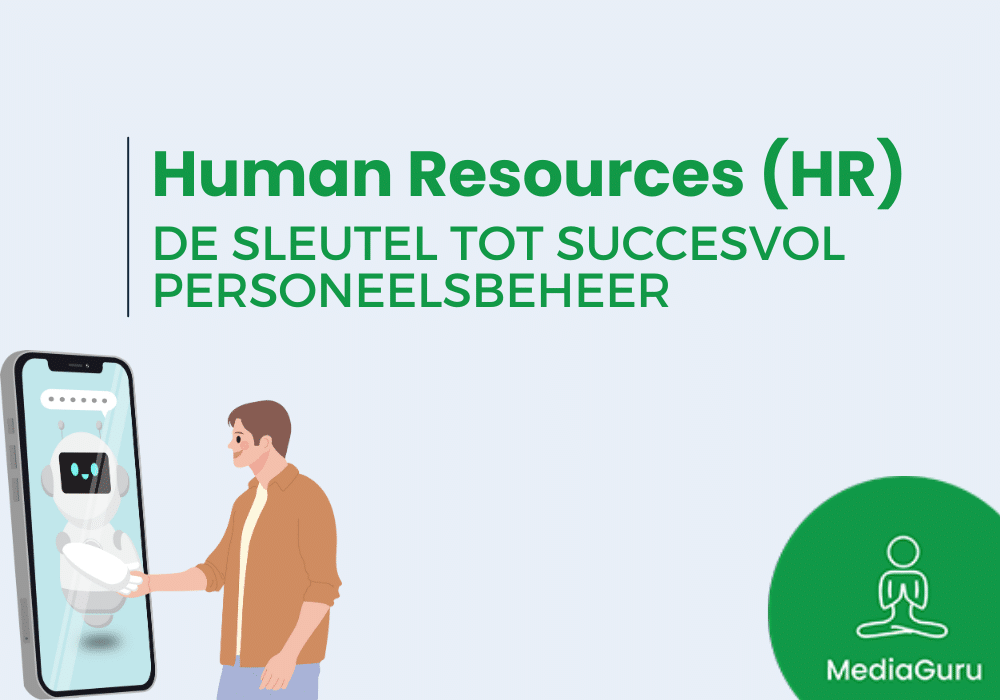What is Human Resources?
Human Resources, often abbreviated as HR, is the beating heart of an organisation when it comes to managing people. It encompasses all the processes involved in attracting, developing, retaining and supporting employees. But HR goes beyond administrative tasks. It is about building a strong company culture, enhancing employee satisfaction and creating a healthy balance between business goals and individual needs.
A well-functioning HR team is indispensable for making companies flexible and future-proof in a rapidly changing labour market.
Key Duties and Responsibilities of HR
HR has a wide range of responsibilities that are crucial to an organisation's success. Below are the most important ones:
- Recruitment and selection: HR not only looks for suitable candidates, but also builds an employer brand to attract talent.
- Training and development: Companies that invest in the growth of their employees benefit from improved productivity and loyalty. HR plays a leading role in this through internal training, in-service training and coaching.
- Performance management: Regular evaluations help set goals and improve performance. HR facilitates these processes and ensures that employees are encouraged to fulfil their potential.
- Labour relations and conflict management: HR acts as a bridge between employees and management to ensure healthy cooperation. When conflicts arise, HR works to find fair and efficient solutions.
- Laws and regulations: Especially in Belgium, where labour laws are complex, HR ensures that the company is fully compliant and avoids legal risks.
These tasks make it clear that HR contributes not only operationally but also strategically to the organisation.
The Evolution of HR in the Modern Organisation
The role of HR has changed dramatically over the years. Where it used to be mainly about personnel administration, we now see a strong focus on strategic personnel management.
- Automation and digitisation: Thanks to modern HR software, administrative processes such as payroll and leave requests are largely automated. This gives HR professionals room to focus on value-added activities, such as staff development and innovation. Read more about our approach here.
- Data analysis and HR analytics: More and more companies are using data to predict trends, such as turnover and staffing needs. This not only makes HR more efficient, but also better prepared for future challenges.
- Change management: HR helps companies adapt to changing market conditions by managing the impact on employees, for example in mergers, reorganisations or the transition to hybrid working.
This makes the modern HR department much more than a support service; it is an indispensable strategic partner.
Future Trends in Human Resources
The future of HR offers numerous opportunities, but also brings challenges. Some of the trends that will shape HR departments in Belgium and worldwide are:
- Digitisation and automation: Tools such as AI and machine learning are increasingly used in recruitment processes and workforce management.
- Sustainability in work culture: More and more organisations are focusing on a sustainable and inclusive workplace, celebrating diversity and making social impact more important.
- Employee satisfaction and well-being: With a growing focus on mental health, companies are investing in wellness programmes such as mindfulness training, flexible working hours and stress management support.
- Personal development: Employees increasingly expect companies to support them in their professional and personal growth, for example through personalised development plans.
HR professionals who adapt to these trends will continue to play a key role in the success of organisations.
Conclusion
Human Resources (HR) is much more than just a support department; it is a strategic partner that helps determine an organisation's success. By putting employees at the centre and responding to trends such as digitalisation, diversity and wellbeing, HR continues to adapt to the rapidly changing labour market. Companies that invest in strong HR practices benefit from motivated employees, a positive work culture and sustainable growth. In short, HR is essential not only for the present, but also for the future of any business.



